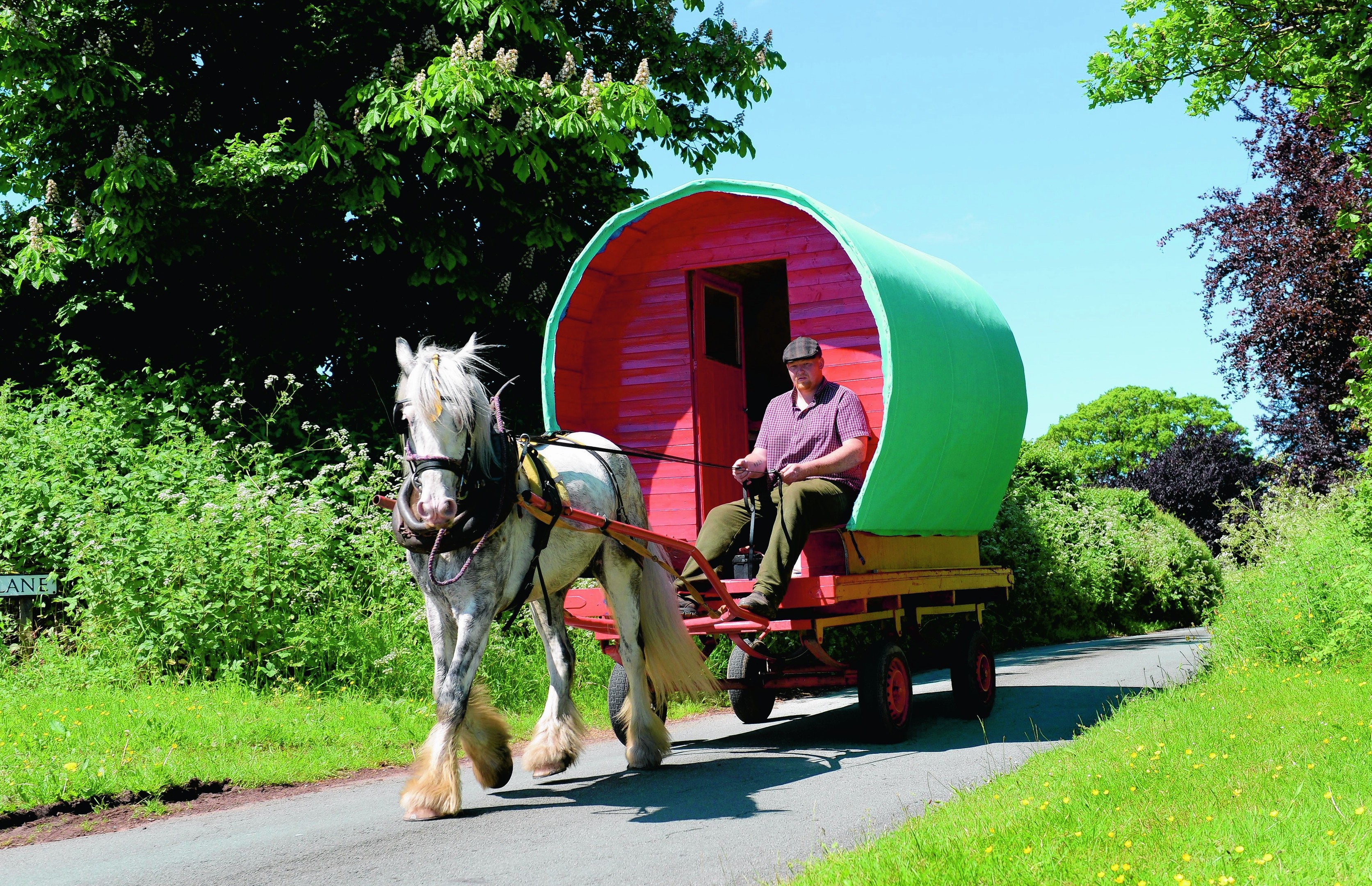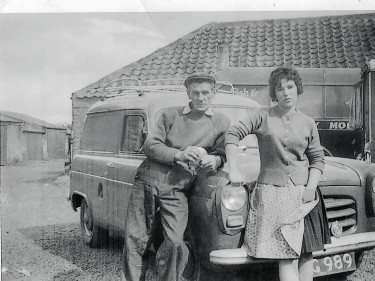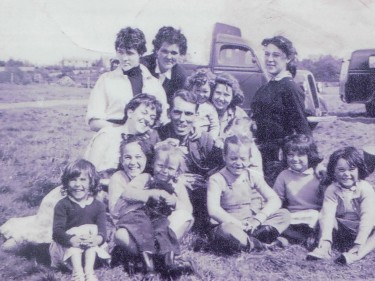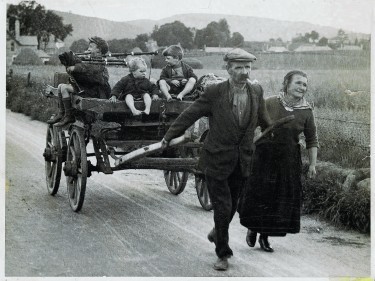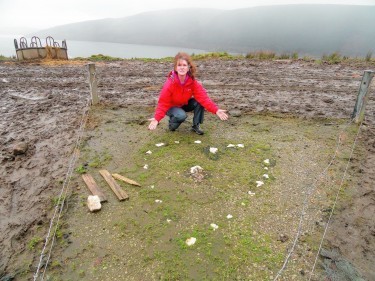A recent campaign to secure national status for a sacred traveller site in Argyll has stoked one woman’s passion for inspiring others to be proud of their heritage
Every week you read about travellers descending on a town, village or city in Scotland.
There are stories about legal battles, public outrage at rubbish being left and general disregard for the neighbouring communities.
But Jess Smith, a traveller and author, says that all cultures have “elements of darkness”.
“That is the world that we live in, we can’t help that,” she said. “But it’s an awful shame that because one traveller makes a mess, the rest are all tarred with the one brush – that’s unfair.”
Born in Aberfeldy into a travelling family, Jess, now 66, is no stranger to the response her culture receives from those living outside it.
Her first experience of the violence towards travellers came at the age of three.
She was living in Pitlochry at the time and was playing on a swing when a couple of drunken men approached her.
“They said ‘oh there’s a wee tinker lassie on the swing, let’s have some fun’. I was innocent, I was just a baby.
“They started to push me on the swing and then one of them kicked the seat underneath me and I went shooting over the bar and I came down like a stone on to the hard ground. They ran away when my father appeared. I was lifted up and taken to hospital. I couldn’t walk properly for a long time.”
In later years, Jess had to give birth to her three children via caesarean section. It was discovered that she had a contracted pelvis – a condition it is now believed has been caused by falling during the horrific event.
I NEVER HATED MY AGGRESSORS
Jess explained that following this incident she became terrified of people, but admits she never hated the aggressors.
“I just thought ‘what a shame that you’ve got such a problem that makes you do evil things’.
“And even to this day I think to myself society has a problem with travellers, travellers do not have a problem with society. It’s sad to carry that through your life, to hate your fellow man, that’s tragic.
“I had a lot of fear in my life at that time. At school I learned to run on the bell, that way the bullies couldn’t touch me. I was also fighting for my sister as well. It’s such a shame that a child has to grow up with that and not knowing why.”
The mother of three said encountering violence and aggression was like “water off a duck’s back” for her and her siblings. They believed it was part and parcel of the culture they lived in – they believed as a traveller they had to expect that kind of reception as they would be considered different.
But despite this, Jess admits that she had a lovely childhood and travelling was something she loved from a young age.
As one of eight daughters, they helped their parents make money by working on farms and collecting wool and potatoes. They also regularly went to school, something their parents were very keen about.
“The law stated that a travelling child had to go to school 200 half days or 100 days a year and they had to have a wee card that they ticked when you had been there,” she explained.
“I’ve been to lots of different schools in my life and I loathed every one of them – because of bullies. They were horrible. But my parents were adamant that we went to school. My father said an education is the most important thing in your life.”
PUT MY CULTURE IN A BOX
Nowadays, many people will associate travellers with taking over a site only to leave it in a mess once they have moved on.
But Jess said her parents were also enforcers of ensuring any site they stayed on looked the same after they left.
“She used to say to us if you see anything lying make sure you pick it up because we don’t want to leave a single thing that wasn’t here before. Mum used to say people live here and if we leave anything they will remember us for that and not for the good times we’ve had round the fire telling stories.”
At the age of 17, life changed dramatically for Jess after she met her future husband, David, who was not a traveller.
The couple tried to live as travellers for a year but it was a life that David was not suited to. They eventually left the travelling life, bought a house and had kids. It was not an easy move for Jess to make, but one she says that she does not regret.
“I had to make up my mind then and there that I would have to put my culture in a box in my memory and leave it there,” she said.
“I just wanted to live in the past because that was where my heart lay, but it wasn’t sustainable, it wasn’t acceptable and it wasn’t good for the kids.
“I don’t have any regrets in my life. My father and mother brought us up to be individuals, have our own minds about things.
“But I have to say I did miss it when I got married, I yearned and mourned for it.
“I had a lovely life, we travelled all over Scotland and we had no problems with campsites. People knew the travellers that were coming and had work for them to do. It’s not like now, poor souls, they can’t get a place to stay any more.”
THE TINKER’S HEART
Jess said the media attention that travellers receive now is not giving the younger generation a good start in life and urged the media to stop “demonising” travelling people.
“It may sell papers but it’s just another way of breaking up the culture and getting travellers to integrate,” she said.
“I would like to see travellers integrated into society, but how do you get people to do that when you don’t respect their culture, and say they are dirty, troubled and liars?”
She believes that while other ethnic minority groups have managed to integrate into society and keep their cultures, it does not work for travellers.
“The difference between the travellers and other minorities is that they integrated into society and got houses and stayed in them. They could be counted and everyone knew who they were,” she said.
“People get a bit iffy about travellers because they can’t count them, can’t get a hold of them.”
As Jess continued her life outwith the travelling community, she always kept in touch with her family and in the back of her mind always wanted to find out more about her culture.
She has written several books about her life as a traveller and the culture itself, as well as running several campaigns to raise awareness of the travelling life and their rights.
Most recently she took up a campaign to have a site sacred to travelling people be given national status. The Tinker’s Heart, near the Rest and Be Thankful in Argyll, has served as “the marriage place” for travelling people for centuries.
In a field by the road to Strachur, overlooking Loch Fyne, quartz stones are embedded in the ground, in the shape of a heart.
Jess is calling on Historic Scotland to schedule the site as a protected area. The government body has previously said the heart “does not meet the criteria for scheduling as a monument of national importance”.
But now a petition on the Scottish Parliament’s petitions page has received more than 1,100 signatures. The document calls on the Scottish Government to direct Historic Scotland to investigate what action can be taken to ensure the preservation of the heart.
The campaign is just one of many ways Jess hopes to inspire younger generations of travelling people to investigate their heritage and be proud of it.
“I am proud to be a traveller. I was born a traveller and I will die one,” she said.
“I’ve never had a problem with my background but I have had a great deal of joy sharing it with people through my books and meeting people.”
